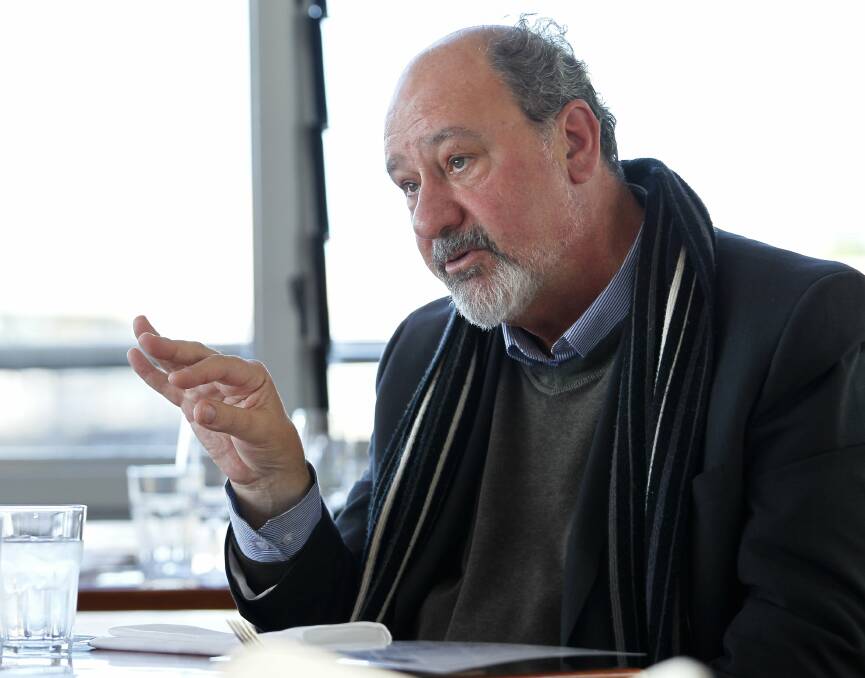
Legislation to ban mulesing in NSW has been introduced into the State Parliament by the Animal Justice Party.
Subscribe now for unlimited access to all our agricultural news
across the nation
or signup to continue reading
Speaking in the NSW Legislative Council, the party's Mark Pearson said if passed the ban wouldn't apply until January 1, 2022.
NSW Farmers Association, with the support of the peak national body WoolProducers Australia, will oppose the push for the mulesing ban.
WoolProducers is now seeking the national introduction of the mandatory use of pain relief for mulesing.
It has argued many Australian growers aren't yet in the position to stop surgical mulesing which helps prevent flystrike in the breech area.
Victorian is likely to be the first state government to introduce compulsory pain relief.
Mr Pearson's Private Member's Bill to amend the Prevention of Cruelty to Animals Act 1979 would also mandate pain relief for procedures such as castration, dehorning and tail docking.
"Recent innovations in veterinary medicine mean that there are now readily available and affordable analgesics such as Tri-Solfen and other substances for farmed animals," he said in his second reading speech.
"Importantly, this bill will actually assist and protect, when passed, farmers and woolgrowers from possible prosecution.
"That is because in section 24 of the Act, which is the exemption, it says that you can do these things to these animals - mulesing, tail docking et cetera - but at the end of each section it says that the director general or secretary has made it very clear it must be in a manner that causes no unnecessary pain.
"If a pain relief is readily available and affordable and is not used, it could be argued that if these procedures are done without the use of that pain relief, it has been done in a manner which has caused unnecessary pain.
"The bill seeks to strike at the fact that ever since that time certain procedures have been permitted upon stock animals - in this case in particular, sheep - which, if performed on domestic animals or a foal, would result in a person facing very serious prosecution under the legislation.
"There is an exemption in section 24 of the Act, which has stood there, either in that format since 1979 or beforehand, where a person can mutilate farm animals - certain stock animals - for the purposes of the mules operation, castration, tail docking, dehorning and beforehand, other procedures, yet not face any prosecution under the Prevention of Cruelty to Animals Act if the procedure was done in a manner that inflicted no unnecessary pain.
"This has been based upon two myths: That farm animals do not feel as much pain as other animals and that young animals - six months or younger, or in some cases 12 months or younger - do not feel pain as much as other animals.
"Veterinary science and veterinary technical knowledge over time has shown very clearly that those animals feel exactly the same pain, or very similar pain, to a dog, a cat, a horse, a foal or other species that are specifically protected.
"If one were to mules a cat, or a foal or a dog, they would be prosecuted very severely. The behaviour, age and reaction to the procedure of those animals brought about the myth among our understanding that they did not feel as much pain.
"It is important to be aware there is a petition - which I tried to table this morning - of now almost 205,000 people in Europe and the US who are watching this debate.
"The issue here - and this is what this bill tries to address - is that much of the wool that is clipped (shorn) in Australia goes around the world and it goes to very, very high apparel buyers and retailers such as Hugo Boss, Zegna, Abercrombie & Fitch et cetera.
"The world is watching what we are doing in our backyard to animals that provide a fibre that travels through China being washed and spun, through New Zealand being knitted and ends up in a Hugo Boss store in New York as a garment.
"The bill is of its time. Animal welfare is now a mainstream concern. New Zealand introduced a complete ban on mulesing in 2018," Mr Pearson said.
The debate has been adjourned.


